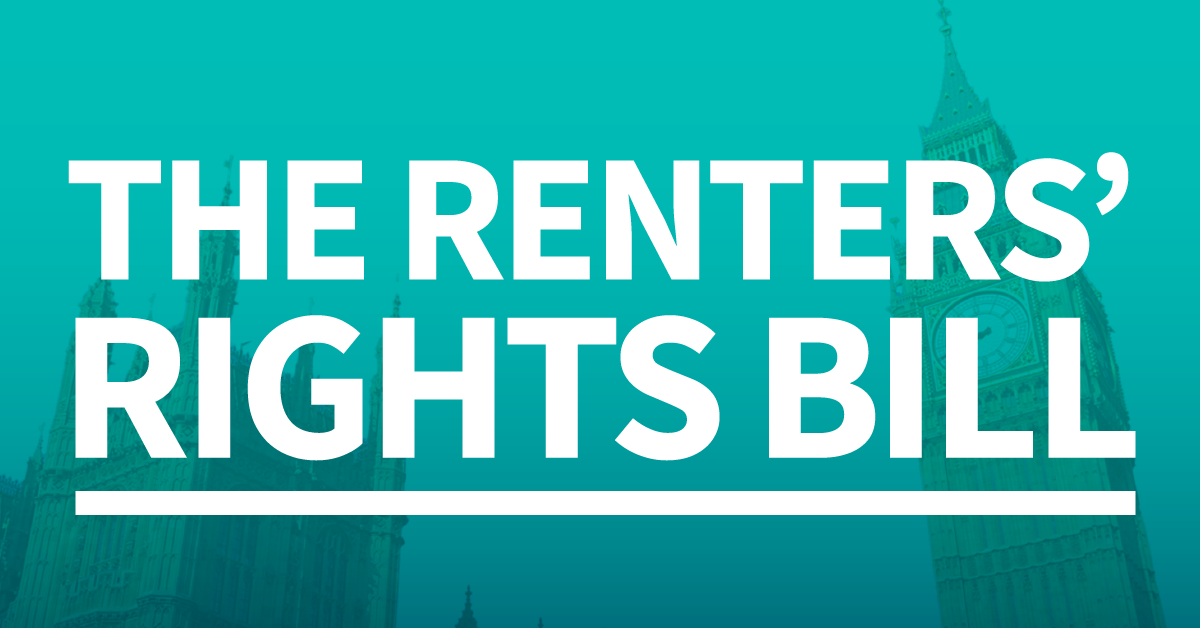

Renters' Rights Bill: Campaign win on student possession ground
Peers debated the Renters’ Rights Bill during Report stage in the Lords this week, in a sitting that lasted more than seven hours. And while it was good news on student lets after an amendment was passed removing the HMO restriction from Ground 4A (opening it up for use by landlords with one or two bed student properties) the news comes with a word of warning: the amendment is likely to be overturned as the regulations 'ping-pong' between the Commons and Lords.
On the plus side the inclusion of the amendment is a clear sign that our campaigning is paying off.
The news comes as the Third Reading of the bill was provisionally scheduled for the 21st July, just a day before Parliament rises for the summer recess. This is the strongest indication yet that Royal Assent will be pushed back to the autumn.
Student Tenancies
We have repeatedly pointed to the need to safeguard all ‘off-street’ student housing, and there was cross-party recognition that one- and two-bedroom student properties, which would have been excluded from the ground – make up a significant portion of the market, and therefore in need of protection.
Peers echoed our arguments, with the Shadow Housing Minister, Baroness Scott, calling out the unfairness of disadvantaging landlords – and students – with smaller properties. The amendment was put to a vote and passed narrowly, delivering a vital improvement to the Bill.
This means that, as the Bill currently stands, the HMO restriction has been removed from the student ground.
However, amendments in the Lords still have to be agreed in the Commons, and the Government will likely look to remove this amendment when the Bill returns to the House of Commons.
We will continue pressing the Government and MPs to retain this change during ‘ping pong’ and ensure all off-street student housing can make use of the possession ground, giving certainty to landlords and students.
Tribunal overload – Government acknowledges our concerns
The rent increase process and capacity of the First-tier Tribunal system also came under heavy scrutiny, with peers warning that changes to the rent appeals process risk the Tribunal being overwhelmed.
This has been another core focus of our campaigns work, and we were pleased to see our concerns raised by Baroness Wolf, Lord Best and others during the debate.
They argued that, without sufficient safeguards or some form of triaging system, there remains a real risk of the Tribunal being completely overwhelmed.
Baroness Wolf built on this argument stating the Government should utilise the expertise available to them through organisations such as the Valuation Office Agency (VOA), to implement a form of triage to filter out those cases with no merit and protect the Tribunal system – a solution we strongly support.
While the Government did not accept amendments on this issue, Baroness Taylor, the government minister responsible for the Renters’ Rights Bill in the Lords, said the Government has given considerable thought as to whether the First-tier Tribunal is the right body to determine all rent increase challenges.
Such an admission by the minister is a positive step and shows, once again, that our arguments on the unworkability of the rent increase proposals have been heard.
The minister went on to say 'there is a compelling case for the use of an alternative body or mechanism to make initial rent determinations.' We will continue to make the case for this so that the Government takes action.
Rent arrears and Universal Credit delays – data access recognised
Another area of significant debate that we have consistently highlighted was the exclusion of arrears caused by a Universal Credit payment delay from the mandatory rent arrears ground, Ground 8.
Lord Carter, tabled an amendment to remove this exemption, stating, as we have, that as landlords are not entitled to know whether a tenant is in receipt of Universal Credit.
He argued forcefully that the caveat makes Ground 8 'unworkable and unfair' and while the Government again rejected the change, it did acknowledge the concern around data and pledged to discuss the issue with the Department for Work and Pensions (DWP).
We have been making the argument that the Universal Credit caveat could not only undermine landlord confidence in the PRS, but make landlords more reluctant to let to tenants in receipt of the benefit.
This is because they would be unable to regain possession of their property under Ground 8 should any issue with the DWP systems occur.
What happens next?
Further Report stage sittings are scheduled for 7th and 15th July. We will be working hard in the weeks ahead to defend key wins – particularly on student housing – and to ensure that the final Bill is workable and fair for the private rented sector. We will also be running an exclusive member webinar on July 17th outlining all the key changes. To book your place click here.
After that it will move to Third reading - listed provisionally for 21st July. As Parliament rises for summer recess the day after, it is unlikely any 'ping-ponging' between the Commons and the Lords, the process by which any final issues are ironed out, will be completed in time for the bill to gain Royal Assent - which will be pushed back to September at the earliest.
More information
- For the NRLA’s exclusive member guides outlining how you can start to prepare for the Bill click here.
- Extra dates have been added for our new Renters’ Rights course, after training sessions sold out in record time. For more information and to book click here.
- We have also added a new eLearning option for the Renters’ Rights course, allowing you to take the training at a time and place to suit you. For more information and to book click here.
- For a more detailed look at the NRLA calls ahead of Report stage click here.

